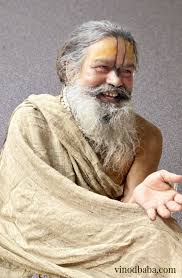Dharma comes before artha

This is the second time that I mentioned that I was preparing to leave for Canada three years ago and how I was nervous. Often before traveling to Bengal or elsewhere I would try to spend a few days at Priya Kunj. Baba even arranged for me to stay in a nearby house one time for a week. Usually though, I would stay in a guest house on the main entry road to Barsana a few hundred meters away. I often had to climb over the fence outside to get in at night because the kirtan would end at 11 when everyone at the guesthouse was already tucked away in their own quarters. I liked the top floor room at Radha Guest House, because I could work there nicely during the day in peace and privacy, but still get to observe the street life down below. This time also I missed getting Babaji's association. On account of Covid I hadn't been to visit for the whole two years I was back. I get to see him on video, which is uploaded every day, but it's not the same. The last two years were weird...

